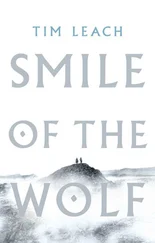‘Yes,’ Zanticus said. ‘A dog of Rome you are now. You shall not speak unless commanded. And what use is it to hear words from a dead clan? I do not bargain with ghosts.’ He smiled, and inclined his head towards Lucius. ‘We shall talk to those from a clan about to die instead. Speak then, Roman. What words do you bring?’
‘Great chieftain—’ Lucius began, but at once he was interrupted.
‘A king now,’ said Zanticus. ‘King of the Sarmatians. There never was anything that could unite us before, until you thought to come across the water.’
‘Great king, I bring a message from the Emperor of Rome. He admires your bravery, salutes your courage. He has no wish to destroy such warriors as yourselves.’
Zanticus spat into the fire. ‘This is all that you have to say? These words, we have heard their like before. Empty, and worthless. Surely there is more you have to offer?’
Lucius hesitated. ‘Perhaps we might speak away from the crowd,’ he said. ‘The words of kings are not fit for the mob.’
‘I am king of the people! We shall speak before the people!’ A great roar answered his words, a chanting and rattling of spears, and Zanticus threw his arms wide open. ‘Offer your bribe, if that is what you came here to do. Offer me gold and lands, a little kingdom of my own. Offer me iron and slaves. Offer it all to me, so I can say no.’
‘I bring no iron or gold,’ said Lucius. ‘I come to offer you war. For Rome, not with her. A great journey, and glorious battle at the end of it, such as your people have never fought.’
Stillness for a moment. The crackle of the fire. Then Zanticus pointed towards the west, and said: ‘Why travel far for a war, when we can have one there?’ Once more laughter answered him around the fire.
‘But against Rome, it is a war you cannot win.’
‘What does that matter? You think us afraid to die?’
‘No,’ said Lucius. ‘But that you might wish to see your children grow old. To enjoy the passage of the seasons, the spring flowers upon the steppe. That you would see ten thousand generations of your people ride free across the plain. It is a beautiful world that you have built here. Why let it end?’
A little sigh then, from somewhere close – a hesitance from the crowd. And a test for Zanticus to answer, whether he were truly a king of his people, or a tyrant leading them into the darkness. For a moment, the peace was there amongst them like a spirit, as hands unwrapped from sword hilts and eyes wandered towards lovers. And then the king spoke once more.
‘There is no promise that you would give that we would trust,’ Zanticus said. ‘You are oathbreakers. You would have us throw down our weapons and let you butcher us. We will fight you, and destroy you. You are here because you are afraid. Why else would you come here?’
And all about them then, the blood-mad chanting, the words of a people who had chosen death. It would be no use to shout them down, to plead. But when Lucius laid a hand upon the hilt of his sword, the Sarmatians fell silent. And when he spoke again, he made himself speak lightly. The way a man might offer an idle wager, or ask a question of a child.
‘You are not afraid to fight the Romans?’
‘Of course not.’
‘Then you would not be afraid to fight me?’
More laughter – uncertain now. For the crowd could feel that the words were changing, sharpening and hardening.
‘Is it the way of your messengers,’ Zanticus said, ‘to insult a king?’
‘I mean no insult. Our people will soon be killing each other. And we may begin it now, if that is your wish. But I have not heard it said that a Sarmatian needed twenty men to kill one of ours. Or that their chieftains and kings lead from behind their warriors.’
‘I do not ride at the back.’
‘Prove it then. Fight me before you send your warriors to die for you. If you have the courage for it.’
Not a moment’s hesitation before the king rose, standing nearly a head taller than Lucius and the iron war gear glittering upon him. Worse than that, a glitter of cunning in the Sarmatian’s eyes. His gaze seemed to feel out old injuries – the spear wound in Lucius’s side, the shield arm broken and reset three years before, the knee that he had wrenched when he first joined the Legion and still favoured in cold weather.
The first and last king of the Sarmatians came around the fire, threw his arm about Lucius’s shoulder, almost brotherly. He leaned close – close enough for Lucius to smell the stink of wine and horse blood upon his breath. For a moment, for all that they were surrounded by a nation, they spoke as if alone.
‘You are brave, Red Crest,’ Zanticus whispered. ‘I will give you the honour of a place on this cloak, and you will still be alive when I peel the scalp from your skull. That, I promise you.’
‘You are a coward,’ Lucius answered, ‘not a king. Your people shall sing my name before the day is out, and you shall be forgotten. That I promise you. ’
A slight widening of the eyes, a hint of grey to Zanticus’s lips – whatever he had expected in answer, it had not been that. Perhaps he, too, had misjudged his opponent. Then the bloody smile spreading across the lips. And Zanticus turned his face to his people, and roared: ‘Though our lives be short!’
And the Sarmatians answered, with one voice: ‘Let our fame be great!’
It was no simple thing, to find the place for the killing. No use looking behind the encampment, the earth torn to pieces by the passage of cart and horse, and all before them the ground was treacherous and uncertain. And so together they went, Lucius and Zanticus pacing across the plain, testing the earth with their spears, stamping down long grass, probing the tussocks and reeds. And as he watched them, Kai thought he saw an odd companionship there, as they pointed out to one another the soft bog that might snare a horse, the tripwire of a root and the pit-trap of a watery hole in the earth. Perhaps, having made the decision to wager their lives, they now only feared a foolish death. A brief truce between them, as each sought to ensure that the other might die well.
All about the Sarmatians gathered – spreading across the rolling bank of the hillside above the campground, others climbing trees and roosting there like birds, while before them the seers and dream readers tore entrails from hare and horse, each one finding victory for the king of the Sarmatians in the bloody loops they cast upon the ground.
Kai sought to forget them all – Zanticus and Lucius, the Sarmatians and the Romans, Arite, Bahadur, and Tomyris in their cage over the water. There was only himself and the horse he tended, the horse that Lucius would fight upon. He led it back and forth to keep it limber, testing again and again the girth of the saddle, kneading the muscles with a horsemaster’s careful love, whispering prayers to the gods of the battle and the hunt. For all his ministrations, the horse tossed its head and stamped upon the ground. It could feel the battle coming.
No horn called to the champions, no marked hour was reached. But something in the crowd grew tired of waiting, and a restless chanting began. A long spear raised into the air, as Zanticus silently answered his people and made his way to his horse.
As Lucius came to him, Kai searched for any signs of fear. Perhaps there was the slightest tremor in the fingers of one hand, that slowness to his steps of a man who cannot bring himself to hurry towards death. But a good blush of colour to lip and cheek, his eyes bright as he took the reins of the horse. It seemed unthinkable that a man so full of life might be about die.
‘We shall see soon enough,’ Lucius said, ‘if I have wasted my chance.’
Читать дальше
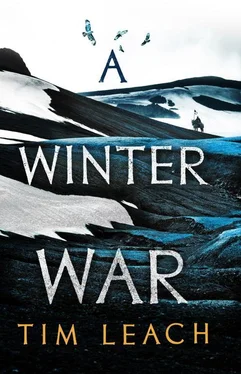
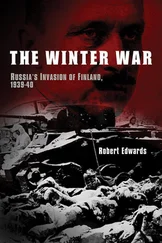

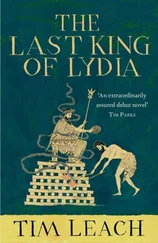

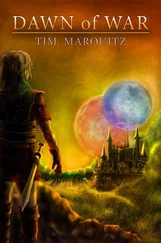

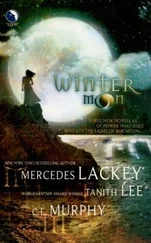
![Стюарт Слейд - Воины зимы [Winter Warriors ru]](/books/401383/styuart-slejd-voiny-zimy-winter-warriors-ru-thumb.webp)
